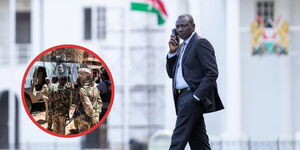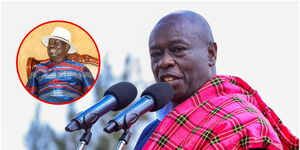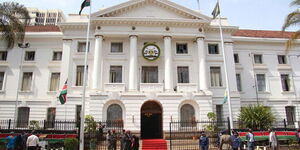Kenya’s capacity to lead the Multinational Security Support Mission (MSSM) in Haiti has come under scrutiny once again after a world leader voiced dissatisfaction with the mission’s progress.
Brazil’s President, Inácio Lula da Silva, on Friday became the latest global figure to call for a stronger security presence in Haiti, as the underfunded and understaffed United Nations-backed mission continues to struggle against the country’s escalating gang crisis.
Speaking during a meeting with Caribbean nations in Brazil’s capital, Brasília, Lula urged the UN to either provide more funding for the current mission structure or upgrade it to an official UN peacekeeping operation.
He cited the mission’s importance to restoring stability to the gang-ridden nation and in the long-term ambitions of establishing democracy in the nation via holding Presidential Elections.
The mission is led by Kenyan forces, with additional support from personnel drawn from Jamaica, Belize, Guatemala, El Salvador, and the Bahamas.
Currently, the United Nations manages the mission’s funding, which relies on voluntary contributions from member states. While several countries have pledged financial support, much of the money is yet to be disbursed. So far, the UN Trust Fund has confirmed pledges amounting to $96.8 million (approximately Ksh12.4 billion).
Kenya has been forced to spend its funds, with reports recently emerging that the country had allocated Ksh2.1 billion for the mission. This, however, put the President William Ruto-led administration on the spot, prompting a response from Foreign Affairs Principal Secretary Korir Sing’oei.
In November last year, the Principal Secretary clarified that the funds spent by Kenya would eventually be reimbursed, describing the arrangement as standard procedure. “This is the normal practice. The resources will certainly be reimbursed to Kenya. The financing mechanism for it is through a trust fund, which enables countries to make contributions,” he stated.
A transition to a formal UN peacekeeping mission, which would guarantee stable and predictable funding, would require approval by the United Nations Security Council (UNSC). While the United States has expressed support for such a move, permanent members Russia and China, who hold veto powers, have opposed it.
In recent months, several world leaders, including those from France, the Dominican Republic, Colombia, and even the Haitian government, have joined the growing calls for increased support to stabilise Haiti.
For its part, Kenya had expressed its support for the Haitian government’s request to the Security Council to authorise planning for the transformation of the multinational force to a UN peacekeeping force.
Monica Juma, the National Security Advisor to Ruto, in a previous address to the UNSC, voiced Kenya’s support in that regard.
“Today, Haiti has appealed to the Security Council to consider the transformation of the MSS mission to a UN peacekeeping operation soon. Kenya strongly supports this appeal. A peacekeeping operation will avail greater resources to the mission predictably and sustainably. It will also provide a broader platform for collaboration and participation of more patterns,” she noted.
Aside from the financial issues, Kenya’s mission in Haiti has reportedly been hampered by technical and administrative issues. Reports of Kenyan police officers lamenting about the lack of quality equipment to handle Haitian gangs have been reported.
Also, claims of the Haitian National Police (HNP) at loggerheads over the Mission’s effectiveness have emerged, but the Kenyan government has always shut down such reports.












